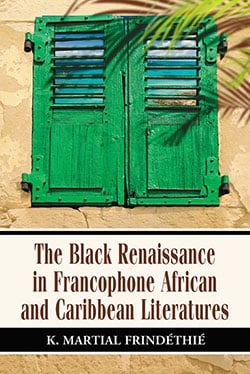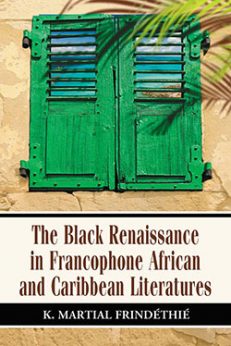The Black Renaissance in Francophone African and Caribbean Literatures
$39.95
In stock
About the Book
This work explores the limits and prospects of Afro-Caribbean Francophone writers in reshaping or producing action-oriented literature. It shows how Francophone literatures have followed a hegemonic discourse that leaves little room for thinking outside of traditional cultural and ideological conventions.
Part One explores the origins of Afro-Caribbean Francophone literature and what the author terms “griotism”—a shared heritage of awareness of biological differences, a sense of the black hero as black messiah and black people as chosen, and the promise of a common racial history.
Part Two discusses the formidable grip of griotism on Fanon, Mudimbé, the champions of Creolity (Bernabé, Chamoiseau, and Confiant), and well-read African women writers (Aminata Sow Fall, and Mariama Bâ).
Part Three seeks to subvert the discourse of griotism in order to propose a new autonomy for Francophone African writers.
About the Author(s)
Bibliographic Details
K. Martial Frindéthié
Format: softcover (6 x 9)
Pages: 215
Bibliographic Info: notes, bibliography, index
Copyright Date: 2008
pISBN: 978-0-7864-3663-7
eISBN: 978-0-7864-9208-4
Imprint: McFarland
Table of Contents
Preface 1
Introduction: Post-Negritude and Literary Theory 3
1. The Quest for Originality 17
2. Paradigm of the Griot 38
3. Negritude of Incompossibility and Negritude of Compossibility 58
4. The Griot, His Word, His Body 64
5. Fanon’s Will to Unity 77
6. Reiterating Griotism 92
7. Black Women Writers’ Dilemma with Theory 108
8. New Nomadologies 125
9. The African Critic as a Griironist 161
Conclusion 178
Notes 183
Bibliography 195
Index 205
Book Reviews & Awards
Choice Outstanding Academic Title
“provocative…writing style is powerful, seductive, and convincing. Each chapter stands alone but all coalesce into an exacting thesis. This book is replete with good notes and an excellent bibliography…highly recommended”—Choice.





